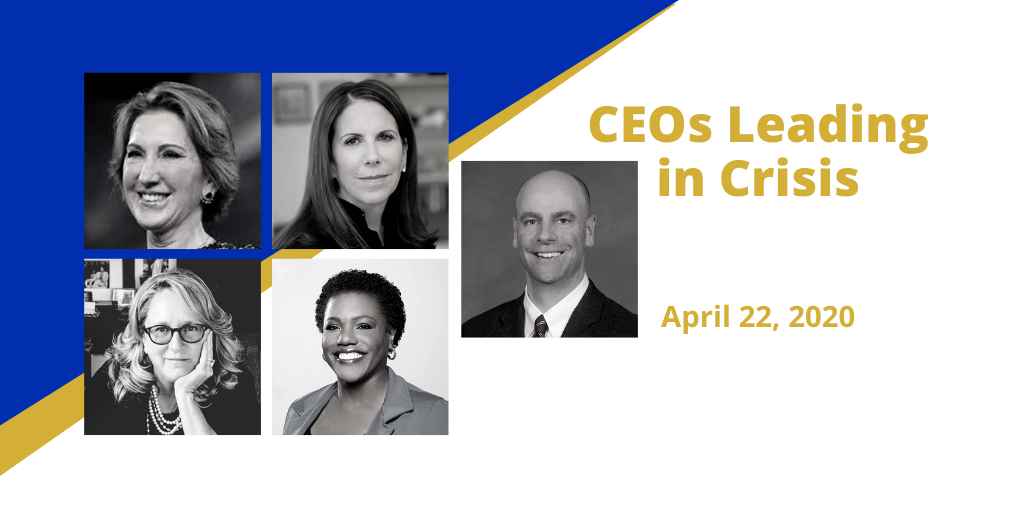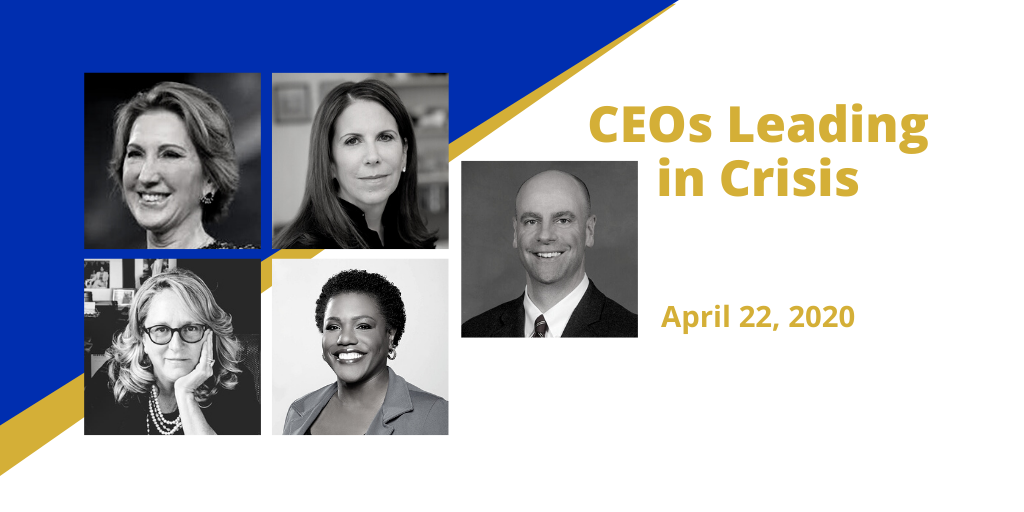The vision and actions of a CEO permeate every aspect of an organization. Financials, customer service, and company culture reflect the goals and strategies of those in leadership positions. A recent shift toward expanding diversity, equity, and inclusion (DE&I) initiatives has created new opportunities for people of color in corporate settings.
In a world where only a handful of companies have been led by people of color, minority representation in C-suite positions is slowly increasing.1 In 2021, only four companies on the Fortune 500 listed a Black CEO.2 The following year, the total rose to six.3
There are numerous barriers to wealth, education, and success for Black people in the United States, where systemic racism is still being dismantled. Some of the Black CEOs of 2022 are corporate powerhouses, while others are up-and-comers who are just beginning to make waves. Successful in a role dominated by white men, they embody determination, mental acuity, and business savvy.
KEY TAKEAWAYS
- In 2022, only six companies on the Fortune 500 list had a Black CEO.
- Black CEOs have had to overcome significant barriers to reach the C-suite.
- These nine CEOs include well-established corporate leaders, as well as up-and-comers who are just beginning to make waves.
- Many of these CEOs are helping to pave the way for others in minority communities to succeed.
- There are 134,000 Black-owned businesses in the United States, employing 1.3 million people.
Top Black CEOs in 2022
The CEOs on our list have overcome incredible odds to achieve business success at a very high level.
The list includes Fortune 500 CEOs, up-and-coming CEOs to watch, and one Black CEO who has made history at the head of more than one Fortune 500 company.
Here, in alphabetical order, are nine of the top Black CEOs of 2022.
Craig Arnold, Eaton
The CEO of power management company Eaton began his career at GE in the early 1980s.4 Craig Arnold learned crucial digital transformation skills working in the industrial sector as computational technologies began to take over the industrial world.
Since being appointed to his C-level role in 2016, Arnold has invested $8 billion in mergers and acquisitions of companies “towards our goal of building this high-growth, higher-margin company with more earnings consistency.”5 But the growth doesn’t stop there. Arnold has stated that one long-term objective of his is “building a new $2 billion to $4 billion eMobility business inside of Eaton.”6
Although his exact net worth is difficult to determine, Arnold realized over $32 million in total compensation in 2021, including a $4.1 million salary and cash bonus, and over $27 million in long-term incentives.78
Rosalind “Roz” Brewer, Walgreens Boots Alliance
Rosalind “Roz” Brewer became the first Black woman to helm a Fortune 500 company (with Thasunda Brown Duckett, below, they became the only two Black women on the list) when she was named CEO of Walgreens Boots Alliance in 2021.9 She spent nearly 20 years honing her leadership skills at Kimberly-Clark before making corporate waves at Starbucks and Walmart.10
Before she stepped into her new position, Brewer’s net worth was around $5 million from her stock trades and Starbucks salary. Prior to leading the popular coffee chain, she held numerous high-level positions at Walmart and then went on to Sam’s Club as its first Black CEO.11
Brewer’s current net worth is unknown, but it was undoubtedly helped by the nearly $25 million signing bonus she got for joining Walgreens, plus the $1.5 million annual salary that came with it. Her public trade disclosures indicate that she has invested most of her wealth in the stock market.12
Thasunda Brown Duckett, TIAA
As only the fourth Black woman in history to lead a Fortune 500 company, Thasunda Brown Duckett took the helm at TIAA in May 2021, moving there from her position as chief executive at JPMorgan Chase Consumer Banking.13 Duckett’s current net worth is unknown. She now earns about $10.4 million in salary.14
The company, more than a century old, was founded to create a sustainable retirement system for teachers; it is committed to helping communities build wealth through financial education.15 (TIAA’s previous CEO, Roger W. Ferguson, Jr.—an economist and legendary Black executive who served as Vice Chair of the Federal Reserve from 1999 to 2006—has an estimated net worth of over $1 billion.)161718
Marvin Ellison, Lowe’s
Last year, the famous home improvement conglomerate brought in $95 billion in revenue, and Ellison was paid in kind.19 He earns a base salary of about $1.45 million as the CEO of Lowe’s but typically ends the year making $17 and 18 million with bonuses and other perks.20
He holds the rest of his wealth in various stocks. Based on the public disclosure of his stock trades, Ellison owns more than 529,000 shares of Lowe’s stock, adding up to another $8.2 million, and in the past, he’s sold at least $10.5 million in Lowe’s stock.2122
Having led J.C. Penney as chairman and CEO before moving to Lowe’s, Ellison is the only Black CEO who has led two different Fortune 500 companies.23
134,000
According to the Census Bureau, there are over 134,000 Black-owned businesses in the United States, with around 1.3 million employees. The total receipts for these businesses are over $133 billion.24
Janice Bryant Howroyd, ActOne
ActOne founder and CEO Janice Bryant Howroyd is a self-made inspiration for women of color. She lived in Los Angeles with only $1,500 to her name in 1978 when she started ActOne, her workforce solutions company.25 Fast forward to last year, when ActOne’s estimated revenue tallied up to more than $3 billion.26
Operating in 19 countries with 2,600 employees and 17,000 clients worldwide, ActOne is the largest privately held female-owned and minority-owned workforce management company in the United States.27
According to Forbes, Bryant Howroyd’s net worth is upwards of $630 million as of 2022, with most of her wealth in commercial and residential real estate.28
Paul Mola, Roswell Biotechnologies
Roswell Biotechnologies is a San Diego–based company that creates simplified and cost-effective DNA sequencing technologies.29 As founder, president, and CEO, Paul Mola works closely with his long-time partner and now chief scientific officer, Barry Merriman, on their sequencing technology, as well as mergers and acquisitions.30 Roswell’s all-electronic chip platform is designed to transform drug discovery, next-generation sequencing, and molecular diagnostics.29
Roswell is on our list because of his novel technological contributions to DNA sciences. He has raised over $50 million in financing for more groundbreaking technologies in the coming years.31
Toni Newman, Black AIDS Institute
When Raniyah Copeland abruptly left the Black AIDS Institute in 2021, the storied organization appointed trans woman and advocate Toni Newman as interim CEO.32 BAI, based in Los Angeles, focuses on HIV education, prevention, and treatment among Black Americans, a group disproportionately affected by HIV.33
Newman’s commitment to her cause carries over into her commitment to her work. She oversees the budget and community programs for the esteemed San Francisco LGBTQ+ non-profit LYRIC, serving as the interim executive director.34 She is also the chair of the board of directors at TransCanWork, an organization that assists disadvantaged members of the trans community.35
Newman is one of only a few trans CEOs of national non-profits. Although her exact income is not clear, her predecessor earned about $150,000 as CEO of the Black AIDS Institute in 2020.36
Jen Nwankwo, 1910 Genetics
This rising star is both a founder and CEO of 1910 Genetics, a biotech company that focuses on decreasing the timeline of drug development so that doctors can distribute innovative therapies to patients in need.37 Nwankwo’s company combines biological automation and automated tools to advance drug discovery practices.
The subject of her dissertation inspired Nwankwo to start 1910 Genetics. Sickle cell anemia affects Black people more than any other ethnicity.3839 As CEO, she seeks to increase the diversity of clinical drug candidates and create medicines that treat genetic diseases that affect minorities.
In 2021, the company raised over $26 million in capital funding to move forward with some of the most advanced biological technologies in the world.40
Robert F. Smith, Vista Equity Partners
Serving as the CEO of his own company, Vista Equity Partners, Robert F. Smith focuses his personal and business investments on software and technology companies. Smith is an avid investor himself, and Vista Equity Partners is a leading investment firm that invests exclusively in enterprise software, data, and tech.41 With a net worth of almost $6.7 billion as of 2022, he is reported to be the richest Black man in the U.S.42
Smith made headlines in 2019 when he paid off the student debt of everyone in the Morehouse College graduating class that year. He announced the gift during a speech at the graduation ceremony.43 In October 2020, Smith admitted to evading taxes on over $200 million in income and agreed to pay $139 million in fines and cooperate with investigators. The agreement he made with the IRS allowed Smith to avoid prosecution, maintain control of his private equity firm, and continue his philanthropy in advancing the world socially, digitally, and financially.44
Growing up as a young Black man in Colorado, Smith says that he only knew one Black business leader. “I realized that part of my role and responsibility now,” he said later, “is I have to give some of these young people someone they can look to and say, ‘Ok, if that guy could do it, I could do it.’”45
What Percentage of Company Executives Are Black?
A 2021 review of top companies by the Washington Post found that only 8% of C-suite executives are Black, although African Americans account for about 12% of the total population. The disparity is even larger when you consider only CEOs. Only six of the top 500 companies have an African-American CEO, or just over 1%.346
What Percentage of CEOs Are Women?
Women remain underrepresented in corporate leadership. As of March 2022, there were 74 female-identifying CEOs in the Fortune 500, up from 41 the previous year. That works out to less than 15%.47
How Many Black-Owned Businesses Are There in the United States?
According to the U.S. Census Bureau, there were 134,000 Black-owned businesses with at least one employee in 2019.48 This was an 8% increase from the previous year, but a tiny percentage of the 8 million businesses nationwide.49
The Bottom Line
Black people are systemically limited in the amount of funding and wealth they can achieve. As one example, only about 1% of Black entrepreneurs see their pitch turn into an investment.50 And Black-owned applicant firms were less than half as likely as white-owned applicant firms to be fully approved for loans, lines of credit, and cash advances, according to the Federal Reserve Banks’ 2021 Report on Firms Owned by People of Color.51
Despite some diversity gains, 86% of C-suite positions are still held by white men.52 That is why the names on this list are so groundbreaking. Celebrating successful Black CEOs and spotlighting their achievements impacts minorities worldwide.
When people of color hold wealthy and powerful positions, other people of color—men, women, children, non-binary, and trans—can see that anything is possible, even in a nation where the power structure was built by and for White men.













